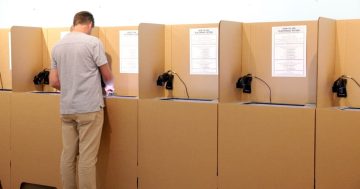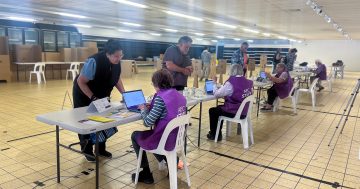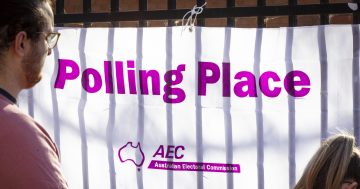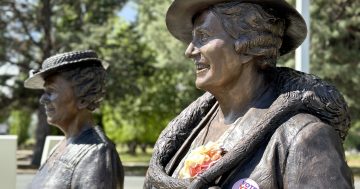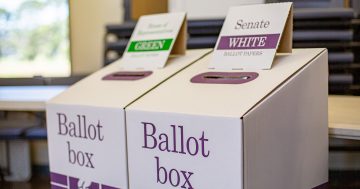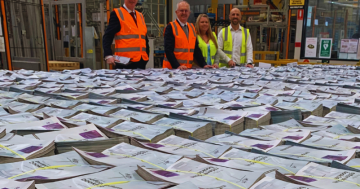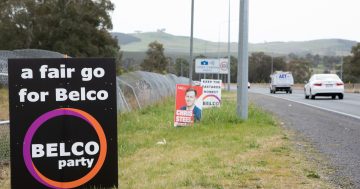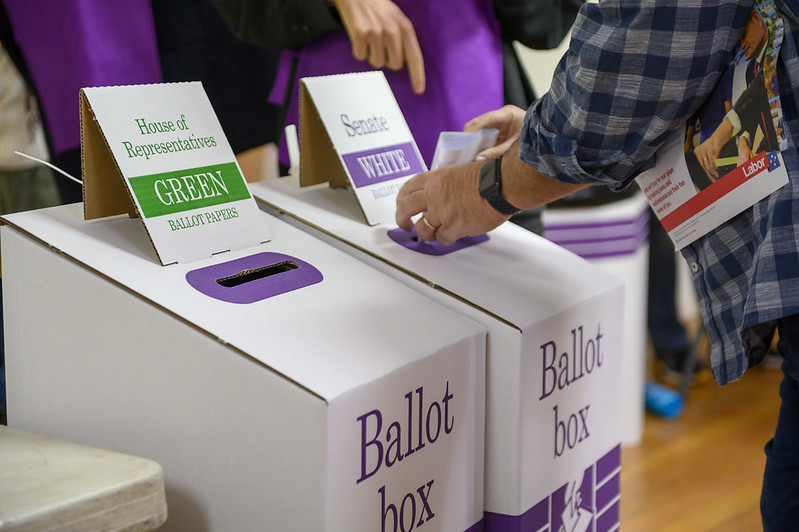
The 2022 federal election will be held Saturday 21 May. Photo: AEC Images.
COVID-positive people will still have their voices heard this federal election, with the Australian Electoral Commission in the process of setting up a telephone voting option.
It will be for people who test positive on 19, 20 and 21 May.
“Postal voting goes up until the Wednesday (18 May) prior to election day, so those who are positive before then can apply for that,” AEC spokesperson Evan Ekin-Smyth said.
“It’s the final three days of voting – the Thursday, Friday and Saturday – that are of concern.”
The AEC is also currently speaking with health authorities to see if those who are deemed close contacts on election day can receive an exemption to head out and vote.
The telephone voting system will only be available to those who can prove they have tested positive to COVID and they will be bound by a legal declaration.
“Basically if you don’t need to use it, don’t. This is an emergency measure only,” Mr Ekin-Smyth said.
“The wait on the phone will likely be longer than the queue at any voting place.”
Electronic voting is not being considered, as there is currently no legislation allowing the AEC to do so.
“It’s not for us to deliver something we legally cannot do,” Mr Ekin-Smyth said.
Elections security expert at the ANU Associate Professor Vanessa Teague described the plan as a “last resort” for voters, and stressed the importance of in-person or postal voting.
“Obviously the security of phone voting isn’t as good as in-person voting, or even postal voting, as you can’t really verify that your vote is being transcribed in the way you asked for, and your anonymity is highly dependent on AEC processes that are hard to check,” she said.
“The main advantage is that the privacy and verification limitations are a lot more obvious than they are for internet voting, which is at least as bad but tends to be – mistakenly – trusted more.”
Associate Professor Teague said physical ballot submissions were more secure as the ballots themselves and their transport were visible to scrutineers.
“This is a critically important security feature,” she said.
“Postal voting of course requires some trust in the security of the postal service, which isn’t ideal.”
Associate Professor Teague said there could be a place for electronic voting with computers in polling places, but that internet voting wasn’t the way to go.
“For example, [a computer] could print out a paper record that people could check and then deposit in a ballot box to be counted in view of scrutineers,” she said.
“By contrast, sufficiently secure internet voting is an unsolved problem.
“The problem with internet voting is that it’s very hard to verify that the votes have been accurately recorded and properly included in the tally.”
The reliability of internet voting has also been called into question in recent years, following outages during the NSW local council elections and its iVote system.
Associate Professor Teague also stressed a very important factor to consider was the recent Assurance of Senate Counting Bill (2021), which for the first time specifies there must be a rigorous statistical audit of the Senate ballot papers to check they are accurately digitized.
“This is a huge step forward for both real and perceived election security in Australia,” she said.
“The Bill means that scrutineers will be able to watch a careful audit in which randomly selected ballot papers are compared with their digital preferences to estimate the error rate and ensure an accurate count.”
It is unclear at this stage how telephone votes would fit into this picture.
Outside of telephone voting, a range of COVID-safe measures will also be in effect at each polling place, including hygiene officers, social distancing, individual pencils, regular cleaning and masks for staff.
Checking in, venue capacity limits and masks for voters will also be implemented if ordered by a state or territory’s health department.
Electoral commissioner Tom Rogers said the AEC had already had plenty of practice running voting centres during a pandemic.
“We’ve been planning the many and various scenarios of running a federal election with COVID-19 safety measures in place since the pandemic began,” he said.
“We’ve run two by-elections in that time as well.”
For now, Mr Rogers said the main priority for all Australians was to check their enrolment, which needs to be up to date by Monday 18 April.
“If you’re not enrolled, you can’t have your say,” he said.












